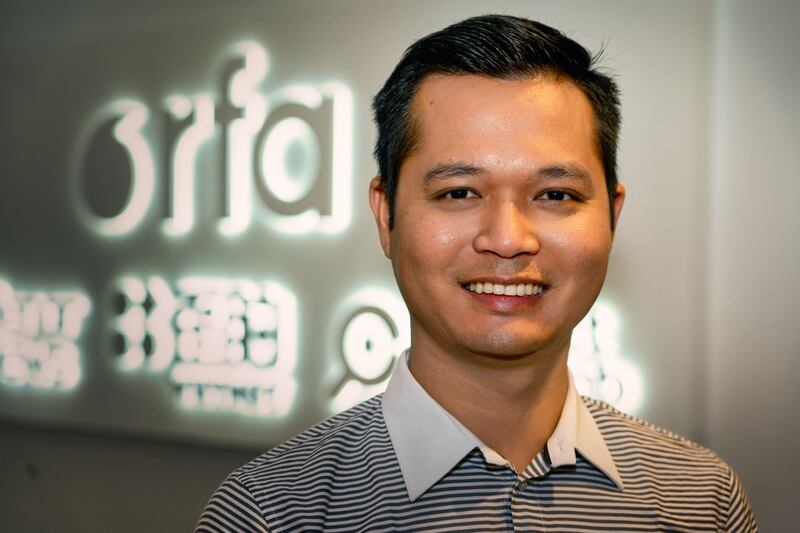We’re three weeks into June, which means that Pride Month is in full swing! To celebrate, Eugene and Amy have invited three RFA staffers into the studio to share their experiences as gay journalists operating in Asia and the U.S.
RFA’s social media editor, going by his pseudonym “Wilson,” returns as a guest, while Soe San Aung (Phoe Khwar), a Burmese Service journalist, and Greg Barber, RFA’s head of digital operations and Innovation, round out the panel.
As with the previous AANHPI Heritage month panel discussion, the conversation today is a two-parter.
TW: This discussion makes mention of sensitive topics including abuse and suicide.
In the first half, the panel discusses being out and proud as journalists. Greg shares that he first came out about 20 years ago while working in the U.S., at a time when far fewer journalists were openly gay. Despite his worries that other peoples’ prejudices could hinder his career, Greg decided that he’d be happiest being himself at work, rather than living with the mental load of masking his authentic self.

For Phoe Khwar, who proudly calls himself Myanmar’s first openly gay journalist, the road to get there was a rocky one. Growing up gay in a small village in Myanmar, Phoe Khwar was subjected to physical and verbal abuse from members of his family and community, to a point where he attempted to end his own life. Even after becoming a journalist, viewers would leave derogatory comments on his broadcasts. However, Phoe Khwar says that he entered journalism to help people who are silenced by society, and that nowadays, he receives many more messages from young LGBTQIA+ Burmese viewers who thank him for doing exactly that.
Wilson, who grew up in Southeast Asia, was similarly singled out by peers in school and wrestled with the thought that there was something wrong with him. He says it took years for him to accept himself and come out to his close friends, but has yet to come out to his family. While working as a journalist in his home country, he was explicitly told to avoid reporting LGBTQIA+ stories, which were treated as lowbrow and almost always depicted negatively. Now at RFA, Wilson says he’s enjoyed a much more supportive environment where colleagues understand and respect each other.
The discussion continues in Episode 9b, focusing mainly on coverage of LGBTQIA+ stories in Asia and the U.S.!
Eugene discussed his attempt to cover a story about a chruch in South Korea that participated in Seoul’s Queer Cultural Festival, juxtaposed with the media’s existing framing that the pride event was opposed by a coalition of self-proclaimed Christian groups. The pastor explained that his church interpreted Christianity in a different way than the groups opposing the event. When it came time to air the report, management told Eugene that the report was biased because it did not cover “both sides.” So it did not make it on the air.
Wilson said that he wished media outlets would not reinforce stereotypes and try to get clickbait by focusing on bad news and drama, and focus more on positive portrayals.
Phoe Kwar discussed openly gay media personalities in the U.S. who are inspirations to him and said that media should focus more on how LGBTQIA+ people contribute positively to soceity.
Greg pointed out that often news about LGBTQIA+ people tends to focus too much on that aspect rather than talking about the news surrounding that person, agreeing with Eugene’s example of Megan Rapinoe, who is one of the greatest soccer players ever, and stories featuring her should be more often about her prolific career rather than her orientation.
RFA Insider will return in two weeks, reaching a big milestone in episode 10.
